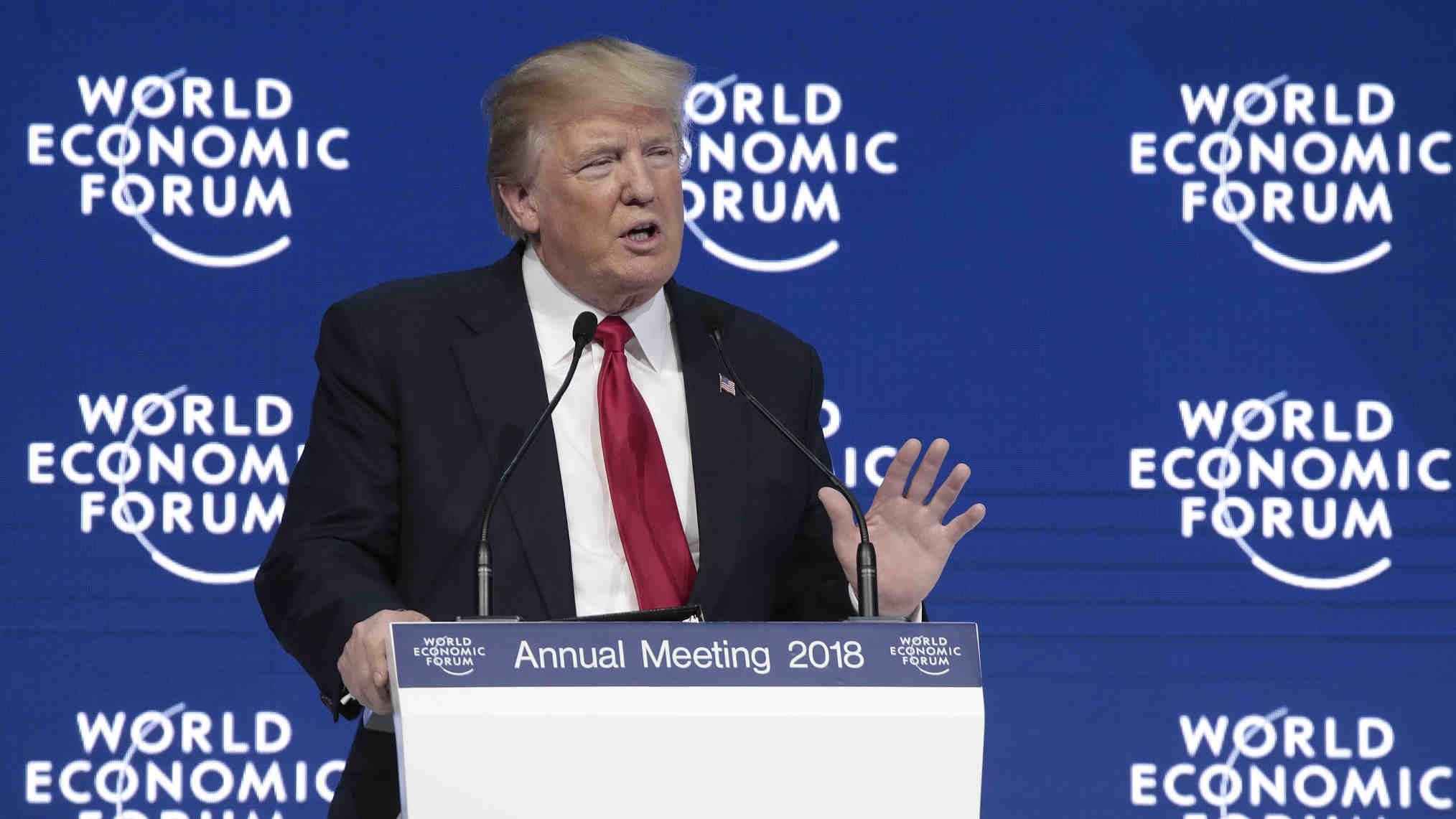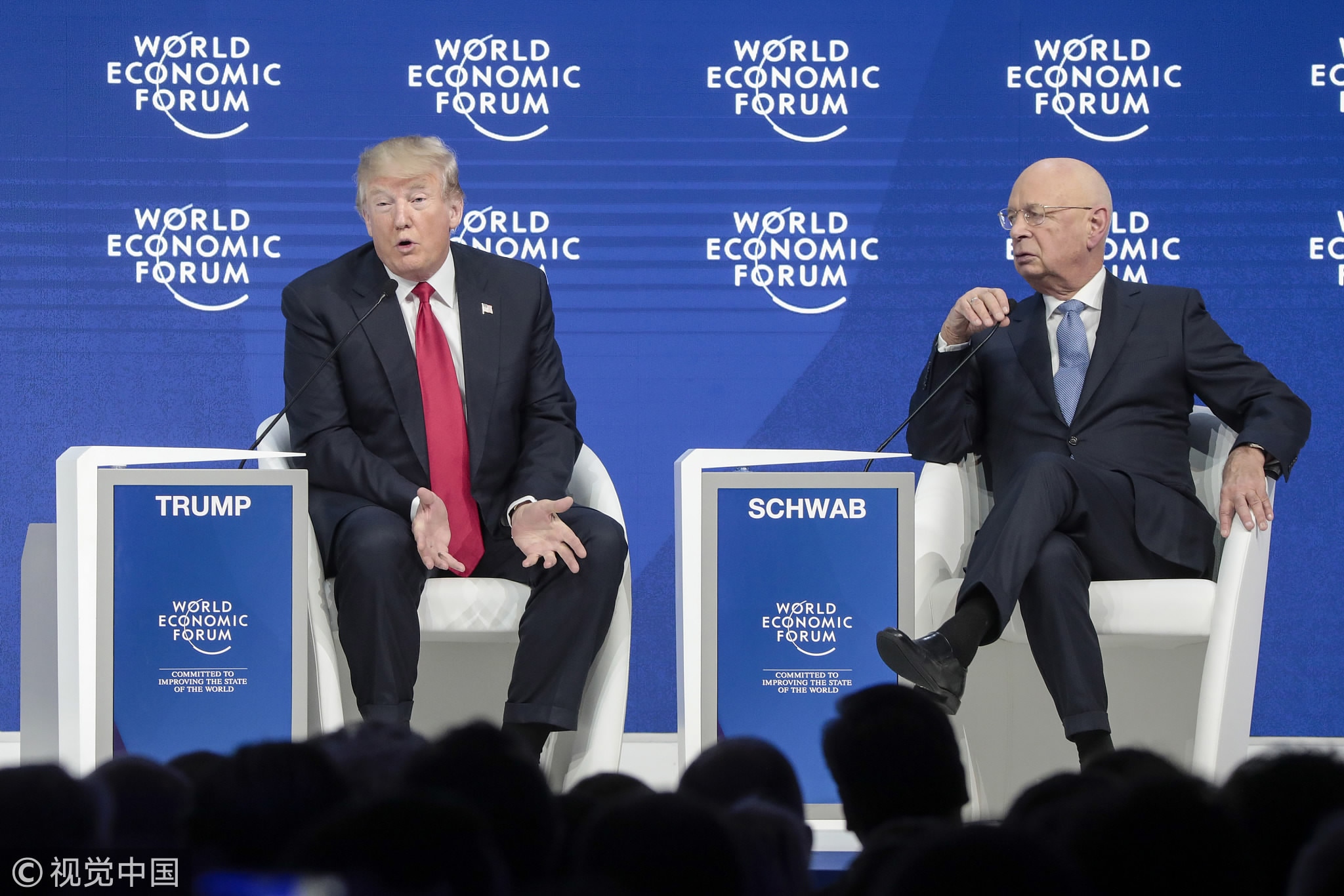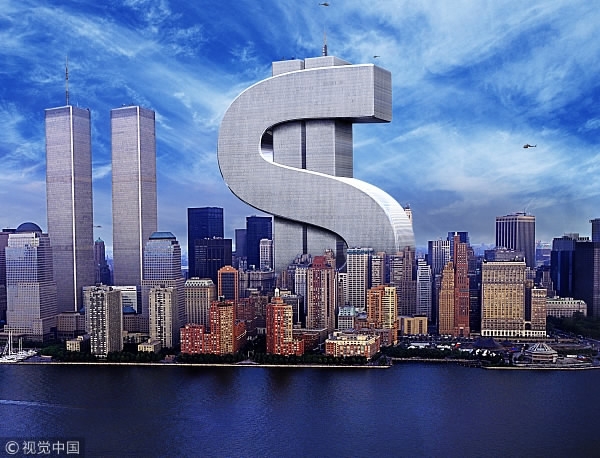
Opinions
13:05, 27-Jan-2018
Opinion: Trump delivers a political stump speech at Davos reminiscent of his presidential campaign
Guest commentary by Dennis Etler

US President Trump’s appearance at the Davos World Economic Forum, for all intents and purposes, served as a preview of his State of the Union Address scheduled for this coming Tuesday, Jan. 30. As expected, he highlighted the good news and ignored the bad.
When it came to his domestic economic agenda, much of what Trump hailed as a success, such as the booming stock market and the decrease in unemployment, were not of his own making. In fact, the stock market was booming during most of President Obama’s administration and job creation and GDP growth during Trump’s first year in office was no better than during much of Obama’s. Most of the success that Trump ballyhooed was a continuation of trends from the Obama years, but Trump obviously would never acknowledge that.

US President Donald Trump, speaks with Klaus Schwab, chairman of the World Economic Forum (WEF), during a special address on the closing day of the World Economic Forum (WEF) in Davos, Switzerland, on January 26, 2018. /VCG Photo
US President Donald Trump, speaks with Klaus Schwab, chairman of the World Economic Forum (WEF), during a special address on the closing day of the World Economic Forum (WEF) in Davos, Switzerland, on January 26, 2018. /VCG Photo
But, credit must be given where credit is due, and some planks of Trump’s program have been more business friendly than Obama’s, contributing to the recent economic uptick. Corporate tax cuts and deregulation have injected new sources of capital into the economy and idle capital that had been sidelined during the Obama years is also now being utilized.
In a sense, prior to Trump, the US economy had been held hostage by monied interests who put their capital on strike, hoping that the sluggish economy that resulted would help catapult a Republican president into office who would create a better investment environment for their idle capital. They had no idea how successful their strategy would be.
The downside of Trump’s economic agenda, of course, went unmentioned. The vast concentration of wealth generated by the tax cuts will further exacerbate income inequality, and many of the economic bonuses that Trump’s policies have generated will be of short duration as government revenues dry up and social services plummet.
Trump’s policies are a band-aid that will not stem the flow of red ink. It seems that the lessons that should have been learned from the Bush tax cuts of 2001 which led to a hemorrhaging of the national debt, were left unlearned, or were they? As then, the richest 0.01 percent will reap the overwhelming benefit from the new round of tax relief.

VCG Photo
VCG Photo
Trump made much of the fact that money is flowing back into the US economy from off-shored profits and foreign direct investment. What this shows is that the position of the US working class has deteriorated to such an extent that it is getting cheaper to hire domestically than to outsource.
This fact has led some Chinese businesses to set up shop in the US as well. In terms of real income and benefits the US worker now finds himself in a far worse condition than 30 years ago and is in a very weak position to regain the ground that has been lost. The assault waged by US business interests against the living standards of US workers since the 1980s can thus be deemed a success.
As regards trade policy, Trump’s "America First" dogma has targeted countries who allegedly engage in unfair trade practices such as intellectual property theft, protectionism and state subsidizing of critical industries.
These charges are often unsubstantiated and are a tactic used to bully and intimidate US economic rivals. To this list Trump has now added state economic planning and industrial policies to specifically target countries which have a different political and economic system than the US, such as China.
According to Trump, countries which engage in his litany of economic sins will be fought tooth and nail. Trump’s dictate that countries who trade with the US must abide by the rules of the road as he defines them is a false bravado. No nation in today’s world can dictate how other countries conduct business and international commerce. There are procedures that exist to resolve trade disputes and no one nation can unilaterally supersede them. The US under Trump must realize that it is not the only game in town.
(Dennis Etler is a retired professor of Anthropology with decades of experience conducting archeological research in China. He has studied Chinese language, history, philosophy and politics for over 50 years. The article reflects the author’s opinion, and not necessarily the views of CGTN.)

SITEMAP
Copyright © 2018 CGTN. Beijing ICP prepared NO.16065310-3
Copyright © 2018 CGTN. Beijing ICP prepared NO.16065310-3